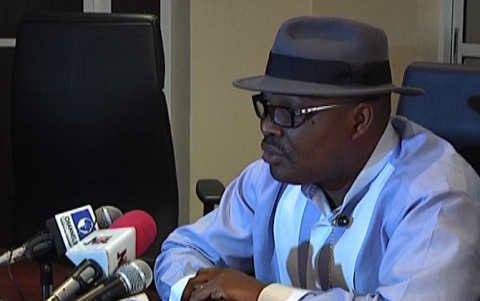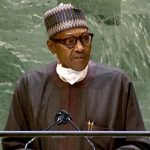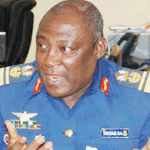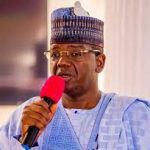OPINION: Bayelsa Comes of Age, By Daniel Iworiso-Markson
Articles/Opinion, Featured Contributors/Columnists, Latest Headlines Tuesday, September 27th, 2016
Twenty years old today and Bayelsa can now be said to be living the dream of its founding fathers. It has discovered a sense of self and after years of relative obscurity it can be said to occupy the centre stage in the politics and development of the Niger Delta and the South-South subregion.
With an administration that has not been shy to drag the state particularly a tiny elite weaned on freebies, kicking and screaming to confront and embrace the imperatives of modern development, there is a certain realisation that Bayelsa is at the threshold of a new future. This is anchored on a trajectory of people-centred development exemplified by massive investment in education, the development of entrepreneurship and self-employment and an economic model that looks beyond oil.
Created in 1996, Bayelsa State has been gocerned by certain contradictory impulses, at times elevating and at some other era, confounding. Arguably it has been a mixed history, particularly on the challenge of leadership as a crucial measure of the greatness of societies. Bayelsa is at the heart of the Ijaw nation, peopled by the Ijaws as Nembe, Epie-Atissa and Ogbia are the other spoken languages.
Although there are still some daunting challenges to overcome in the onward march to fully claim the Bayelsa promise, we have cause to celebrate the state and its people at this momentous juncture as much as our culture, resilience and dynamic evolution in the race to actualize the lofty dreams of the founding fathers.
. It has not been easy as expected but the clarity of purpose; focus and determination have been quite ennobling.The current forthright and innovative leadership has been endued by the tremendous efforts of the pioneers especially those of the first civilian governor, the late Chief Diepreye Alamieyesiegha and of course, the contributions of others like the former president, Dr. Goodluck Ebele Jonathan.
Aside these democratic leaders were also the military governors and the architects of the creation of the state. They agitated, plotted and eventually persuaded the late head of state, General Sani Abacha to create Bayelsa among those six others created same time in 1996. I dutifully recognize and applaud the great sacrifices of the founding fathers including King Alfred Diette-Spiff, Chief Thompson Okorotie and Rear Admiral Festus Porbeni (rtd). Others were Senator John Bambafra, Dr. Amba Ambaowei, Chief Lambert Eradiri, Dr. Felix Tuodolo and such patriots who played their part in the noble quest to safeguard the basic Ijaw interest rather than being perpetually victims of marginalization before being excised from the old Rivers State.
20 years down the line, how has Bayelsa State fared? As already noted , it has been a mixed grill. The road travelled was often bedevilled by self-inflicted pain,of missed opportunities and wrongs. Most media mention of Bayelsa State is as an “oil rich” state but often glossed over is the political economy of oil in relation to development, the devastation of the ecology as a result of oil exploration beginning from the first discovery in Oloibiri in 1956. So as much as we discount for profligacy by some past leaders and the fine oil receipts before the recent slump in prices leading to recession, the very difficult terrain of the state has been a huge barrier to development cost-wise. But this cannot be an alibi for unending under-development. The challenge is to take on the adverse factors through determined and purposeful governance.
It would have been easy for the Henry Seriake Dickson administration to carry on with business as usual and ignore the mess it inherited when it was inaugurated about five years ago. The inherited liabilities included an all- pervading dysfunction of government, absence of even basic structures and strictures to ensure the coherence of governance and of society with the result that insecurity reigned supreme. A huge debt overhang for projects and purposes few fathomed appeared to doom all future prospects for development.
Clearly the Dickson administration had its work cut out. Calling itself a aptly called Restoration Government went beyond semantics. Its distinguishing characteristic was as a modernizer, enforcing basic ethics in governance, best practices and delivering on the dividends of democracy as sold to the people during electioneering campaigns.
This was how the government fixed the chaotic security situation it met, applying technology to tame insurgency both on land and on the waters, revived the culture of dignity and patriotism among the citizenry and put basic institutions back to form as enabling laws particularly those enshrining transparency and accountability in public finance were enacted to make society work better.
Normalcy has since returned to the once restive land because the system is working and solving problems as a matter of responsibility.
With the teething challenges solved, government moved spiritedly to focus on the challenge of development, priotising education as a major objective. The comprehensive free education policy which was a major plank of the government’s declaration of state of emergency in the sector on assumption of duty in 2012, has since delivered bountifully in the provision of remarkable infrastructure, quality education that is truly free, upgrading and bringing back the culture of boarding schools to all the senatorial districts in the state. It has cost a fortune but the government feels fulfilled because the future is being ensured.
Similar narrative is what we have seen in infrastructure, building of roads and bridges all over and thereby opening up the state for rapid socio-economic development.
But government recognized that Bayelsa is a civil service state and hence the accelerated economic diversification long embarked upon even before it became a singsong by the federal government, following the oil price crash and the consequent recession.
A hard thinking Restoration Government is focusing on agriculture in its various forms, particularly fisheries as a prime occupation of the people and encouraging deep private sector participation in oil and gas, building power generating companies and investing in the long proposed LNG in Brass. The Urea fertilizer production plant in the state is also a potential cash cow that could change the dynamics of the Bayelsa economy in no distant future. The envisioned free trade Agge deep seaport captures the objective of a buoyant economy that transcends oil, boosting the state’s IGR and more importantly providing gainful employment to Bayelsans, many of whom have in the last five years enjoyed some of the best education in the world with trained professionals in diverse technical fields.
There is work ongoing on the 50 hectare Eco Industrial Park at Gbarain where light manufacturing is envisioned spawning a rich diversity of other economic activities in transportation, housing, hospitality and commerce.
With such a realistic and organized development model, Bayelsa is firmly in good hands as prosperity is assured for all. What will count, however, is the need to ensure continuity after Dickson’s second term, thereby steadying the course of development and in order to hedge against relapse to past profligacy.
Twenty years in the life of a state is relatively a short period but it is enough time to do incalculable damage just as it provides time to correct course.
Hon Henry Seriake Dickson as governor has not only boldly and courageously corrected Bayelsa’s course he has set it on a firm trajectory to achieve a society that benefits its people.
Iworiso-Markson, Chief Press Secretary to Bayelsa State Governor, sent in this piece from Yenagoa
Related Posts
Short URL: https://www.africanexaminer.com/?p=35728






















